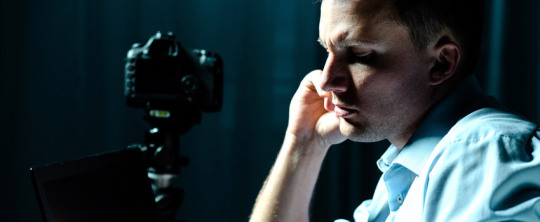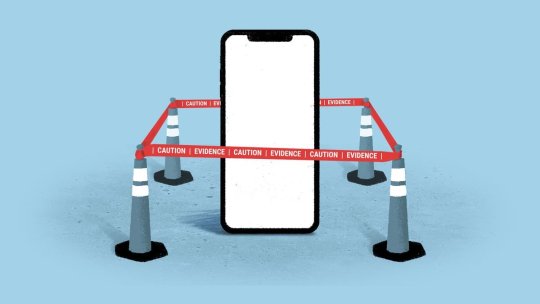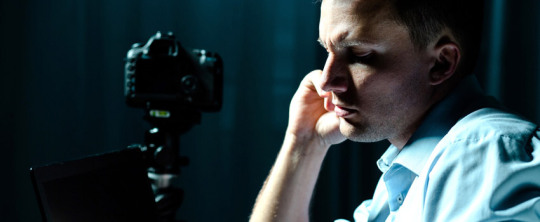#personal security
Video
youtube
Walgreens Security Guard Accuses Black Woman Of Theft, Threatens To Cuff Her
Well he calmed the fuck down when the Real Popo showed up and gave her some justice. No Cameras, No Video, nothing but him being a real dumbass and working on getting that lawsuit on instead of that swapmarket swat gear walkin round in a walgreens
#youtube#racist#security guards#fake security#lies#liars#cameras#personal security#Walgreens#rent a cop#racial profilling#Black Lives Matter#washington#Walgreens Security Guard Accuses Black Woman Of Theft Threatens To Cuff Her
4 notes
·
View notes
Text
#Luxury Directory#Lifestyle Concierge#private jet charters#personal security#distinguished interior designers#and esteemed art advisors
2 notes
·
View notes
Text
10 Essential Tips for Ensuring Personal Security
In today’s world, personal security is more important than ever. With the rise of cybercrime and physical threats, it’s crucial to take steps to protect yourself and your loved ones. Whether you live in a big city like Las Vegas or Miami, or a small town, these 10 essential tips will help ensure your personal security.
Prioritize personal security by starting with a heightened awareness of your…

View On WordPress
1 note
·
View note
Text

Bond Rees: Your Trusted Partner in Unveiling the Truth
Need answers? Looking for concrete evidence? Bond Rees is your one-stop shop for reliable, discreet, and effective private detective services in the UK.
Bond Rees isn't just a private detective agency; we're your confidant, your partner, and your champion in uncovering the truth. We understand the sensitive nature of your case, and we're committed to providing discreet, professional, and effective solutions.
#Private Investigator#Investigation Services#Surveillance#Background Checks#Missing Persons#Cheating Spouse#Licensed Investigators#Bondrees.com#Professional Investigations#Information Retrieval#Confidential Investigations#Personal Security#Private Detective#Trustworthy Investigators#Investigative Services
0 notes
Text

Abby meets Cassie’s favorite FNAF animatronic Roxy!
#myart#chloesimagination#comic#abby schmidt#fnaf cassie#fnaf roxy#roxanne wolf#fnaf#fnaf movie#security breach#fnaf ruin#fnaf fanart#five nights at freddy's#ROXY RETURNS 💜💜#Abby finally meets Roxy!#it only made sense to me that Cassie would introduce Roxy to Abby#Abby wanted her makeup done too! to match the other two#though I felt like glam makeup didn’t match her vibe#the death metal look felt more fitting to Abby’s personality something she’d want#Roxy is their collective cool older sister#SUPER cute to draw out#I love all these gals dearly 💜💜
5K notes
·
View notes
Text
Mark Grobbelaar began karate at the age of nine and holds a 6th Dan, as well as provincial and national colours, he has over 45 years experience in his field and is founder of a revolutionary concept to give women their power back.
“The course of my life changed after a friend of mine, was abducted outside her home about 25 years ago, raped, her throat slit , disembowled and left for dead .Alison and I met in London before the attack and reconnected, where we spoke about her ordeal.
I realised that she had made some bad choices because she just didn’t know any better, she didn’t know all the options and didn’t know “The rules” , I wrote a thesis for my 5th Dan grading on “Self-defence for Women”. Alison contacted me after reading my thesis and said that if she had done what was suggested, she would never have gone through her ordeal.”

Thus Women INpowered ( WIP) was born. WIP is not “self-defence” as understood by most people, which is totally useless if you are not prepared to invest the many hours of training that is required.
Mark has a very unique philosophy to personal protection, his talks and programs are engaging ,fun and many have said are “life changing” “it will change the way you think, and you will look at the world around you differently “ says Mark
Mark Grobbelaar challenges the concepts of what self defence is and what it is not, and challenges what many people believe to be fact.
Mark Grobbelaar has spoken around the world and has worked with over 7000 women and young ladies from all walks of life, from school children to Miss Universe.
The concepts he covers are not only relevant to “personal protection” but also Life.
WIP will give you the ability to make a choice in a threatening situation ,we are faced with barriers every day how and if we get through them is up to us
WIP is an extremely simple, easy-to learn yet devastatingly effective self-INpowerment system that has been designed specifically for Women to give them the ability to make a choice when they find themselves in a threatening situation.
1 note
·
View note
Photo

Check Out This Fantastic Post Just Published on https://selfdefensegearco.com/personal-protection/stay-safe-and-stealthy-the-friphone-stun-gun-the-ultimate-self-defense-accessory/
Stay Safe and Stealthy: The FRiPHONE Stun Gun - The Ultimate Self-Defense Accessory!

Introduction to the FRiPhone Stun Gun Stun guns have become popular self-defense tools for people around the world. With the rise of crime rates and the increasing need for personal security, stun guns have become an essential accessory for those who want to protect themselves from harm. One such stun gun that has gained popularity […]
0 notes
Link
0 notes
Text
The fact that Judaism is trending because of both the wave of bomb threats on synagogues and Bradley Cooper's Antisemitism Adventure (his huge fake prosthetic nose, and him basically stealing the story from a Jewish man) is so infuriating and so exhaustingly typical.
The fact that I see Judaism trending on Tumblr and immediately think "oh no. Something Bad is happening to us." We're never trending cause it's fucking good. I never get to be excited, it's just cold dread.
The fact that Antisemitism is getting worse everyday and the only ones who ever talk about it are other Jews. The fact that no one else fucking cares. The only ones who support us are other Jews. Even when gentiles talk about Nazis or white supremacists they don't want to help us. We're just their prop, the canary in the coal mine and the perfect victim.
The fact that everyone's uncomfortable with Jews still being here. Reminding them of things they'd rather forget.
The fact that it'd be easier for them if we were all dead. Then they could tell stories about our people, dressed in offensive caricatures, without us making a fuss.
#im so fucking pissed right now#jew tag#judaism#jumblr#when will we be able to catch a fucking break man#i keep thinking about dara horn man#she said it best#a hundred times#Sarah's bullshit#I'll probably delete this later i just AUGH#g-d im angry i just wanted to rant#me and every jewish person ever who went to hebrew school or shul or anything#we have armed security guards as some flimsy protection so we dont get hate crimed#so no one comes in and shoots our kids#by the way. its not normal. its been all ive ever known though#g-d forbid one of those bomb threats is real will gentiles slap on a fake nose and make a movie about it twenty years later
3K notes
·
View notes
Text

Photo by Zac Freeland/Vox
The government’s ability to access phone data depends on a patchwork of court decisions and laws that predate the technology.
Our lives are on our phones, making them a likely source of evidence if police suspect you’ve committed a crime. And there are myriad ways law enforcement can obtain that data, both externally and from the phone itself.
Companies that specialize in cracking phone passcodes and exploiting vulnerabilities are getting better and better at undermining them. And although Apple has tried especially hard to make its phones impossible to break into, more and more law enforcement agencies are using those tools to gain access to devices, even when someone is accused of relatively petty crimes.
While there are a few good primers online that cover the steps you can take to minimize your phone’s exposure to law enforcement surveillance, there’s no way to completely guarantee your privacy.
When it comes to data that can only be obtained from access to your phone, what law enforcement can actually get varies depending on how you lock it down, where you live, and the jurisdiction of the law enforcement agency that is investigating you (local police versus the FBI, for instance). Here are some of the main ways the government can get information from your phone, including why it’s allowed to and how it would do so.
Law enforcement wants access to third-party data on my phone. What can it get?
Short answer: Whatever it wants (with the right court order).
Long answer: Depending on what law enforcement is looking for, it may not need physical possession of your device at all. A lot of information on your phone is also stored elsewhere. For example, if you back up your iPhone to Apple’s iCloud, the government can get it from Apple. If it needs to see whose DMs you slid into, law enforcement can contact Twitter. As long as they go through the proper and established legal channels to get it, police can get their hands on pretty much anything you’ve stored outside of your device.
You do have some rights here. The Fourth Amendment protects you from illegal search and seizure, and a provision of the Electronic Communications Privacy Act of 1986 (ECPA) dictates what law enforcement must obtain in order to get the information. It might be a subpoena, court order, or warrant, depending on what it’s looking for. (WhatsApp actually does a good job of explaining this in its FAQ.) A section of the ECPA, known as the Stored Communications Act, says that service providers must have those orders before they can give the requested information to law enforcement.
But, assuming the government has the right paperwork, your information is very obtainable.
“Basically, anything that a provider has that it can decode, law enforcement is getting it,” Jennifer Granick, surveillance and cybersecurity counsel for the ACLU’s speech, privacy, and technology project, told Recode.
Note that this only covers service providers. If law enforcement wants to get WhatsApp messages you exchanged with a friend from your friend’s phone, it doesn’t need a warrant as long as your friend is willing to hand over the information.
“You don’t have a Fourth Amendment interest in messages that have been received by someone else,” Andrew Crocker, a senior staff attorney for the Electronic Frontier Foundation, told Recode.
If your friend refuses to willingly hand over what the police want, they can still get it — they just have to get a warrant first.
Law enforcement wants access to personal data on my phone. Can they do that?
Short answer: If your phone is protected by a passcode or biometric unlocking features, there’s a chance police can’t gain access to your personal data. But that’s not guaranteed.
Long answer: In addition to data hosted by a third party, there’s a lot of information that can only be gained from access to your phone. For example, the data in iCloud backups is only as recent as the last time you uploaded it, and it only includes what you choose to give it — assuming you back up your phone at all. Encrypted messaging services like WhatsApp don’t store messages on their servers or keep track of who is sending them to whom, so the only way for police to access them is through the sender’s or the receiver’s device. And as we’ve explained above, the government can get WhatsApp messages from the person you’re communicating with, but only if it knows who it is in the first place.
So how exactly would someone other than you — police, for instance — get access to that data? If your phone doesn’t have a password or law enforcement is able to access it using specialized passcode cracking tools like Cellebrite or GrayKey — and they have the necessary search warrant to do so — then it’s all theirs. A 2020 report from the technology and justice advocacy group Upturn showed that law enforcement use of these phone-cracking tools is more prevalent than previously known, and there is little oversight governing how and when those tools may be used, or what information they’re limited to accessing. But if your phone is locked with a passcode and law enforcement can’t hack into it, the Fifth Amendment may be your friend.
Essentially, the Fifth Amendment says you can’t be compelled to give self-incriminating testimony. (This amendment is perhaps known best to you as that dramatic moment on Law & Order when the person on the stand says, “I plead the Fifth.”) Testimony, in this case, is defined as revealing the contents of your own mind. Therefore, civil rights advocates say, the government can’t force you to tell them your phone’s password.
Most courts seem to agree with this, but that’s not always enough. There is what is known as the foregone conclusion exception. That is, a defendant’s testimony is not self-incriminating if it reveals something the government already knew, and the government can prove that prior knowledge. In this case, the defendant’s testimony is a foregone conclusion — a predictable outcome.
So, for phone passwords, the government can and does argue that revealing the password only shows that the phone belongs to the defendant. If the government has enough proof to establish the phone’s ownership, that’s a foregone conclusion that the defendant would also know its password. Some courts have interpreted this to require the government also to show it has knowledge of the specific pieces of evidence it expects to find on the device.
This exception comes from a 1976 US Supreme Court ruling. In Fisher v. United States, someone being investigated for tax fraud gave documents prepared by his accountant to his lawyer. The IRS wanted those documents; the defendant said that producing them would be self-incriminating and therefore was protected by the Fifth Amendment. The Supreme Court sided with the IRS, ruling that since the existence and location of the tax documents was a “foregone conclusion,” the act of producing them didn’t tell the government anything it didn’t already know.
Obviously, a 44-year-old decision over tax papers doesn’t take into account how information can be stored today, nor how much.
“The EFF’s position is that the foregone conclusion exception is very narrow and should never apply in these passcode cases,” Crocker said.
But without further guidance from the Supreme Court, it’s largely been left up to interpretation by lower courts, with state courts considering their state constitution’s provisions as well as the federal. The result, Crocker says, is “a total patchwork of [decisions from] state Supreme Courts and federal courts.”
For example, in 2019, Massachusetts’s highest court forced a defendant to reveal his phone’s passcode while Pennsylvania’s highest court ruled that a defendant could not be compelled to unlock his computer. Indiana’s and New Jersey’s highest courts are both considering compelled passcode disclosure cases. On the federal side, the Third Circuit Court of Appeals ruled that a defendant could be compelled to unlock multiple password-protected devices, even though the defendant claimed he couldn’t remember his passwords. The 11th Circuit Court of Appeals, on the other hand, ruled the other way in a different case.
“It’s very much in flux,” Crocker said. “Eventually, the US Supreme Court could get involved and resolve this.”
There are other ways to protect your phone. Some phones can use fingerprints, facial recognition, and iris scanners to unlock instead of passwords. Law enforcement is allowed to use people’s bodies as evidence against them, for instance by compelling them to participate in suspect lineups or provide their DNA. So if the police can take your fingerprints, can’t they use them to unlock your phone? Again, courts are all over the map on this.
“The issue with biometrics is, is it testimonial?” Granick said. “The courts have not entirely decided that, but there have been a couple courts recently that said biometrics is basically the modern technological equivalent of your passcode.”
Crocker says courts should consider that the evidence police can get from your fingerprint is much more restricted and known than what they can get when your fingerprint unlocks a phone. So far, though, he says, courts have been more likely to rule that the Fifth Amendment does not apply to biometrics than they are that it applies to passcodes.
Yet another factor to consider here is that, while it’s impossible for police to read your mind and get your passcode, they can hold a phone up to your face or press your finger on it to bypass the biometric lock. And while your lawyer can (and should) argue that any evidence found this way was illegally obtained and should be suppressed, there’s no guarantee they’ll win.
“It’s fair to say that invoking one’s rights not to turn over evidence is stronger than trying to have the evidence suppressed after the fact,” Crocker said.
So, all things considered, if you’re worried about law enforcement getting access to your phone, your safest bet is to just use a passcode.
Sadly, I have died. Law enforcement wants to unlock my phone, but they can’t get my password due to my aforementioned death. What happens now?
Short answer: Your Fourth and Fifth Amendment rights generally end when you do. But other parties have rights, too, and those might be enough to keep the government out of your phone.
Long answer: This isn’t about your Fourth or Fifth Amendment rights anymore; for the most part, you lost those when you died. (That said, law enforcement might have to get the right paperwork if they were looking for evidence against someone else on your phone — after all, their Fourth Amendment rights are still intact.) If law enforcement can’t get into your device on its own, it may well be the phone’s manufacturer’s rights that come into question.
[Former] Attorney General Bill Barr has made no secret of his disdain for Apple over its refusal to grant law enforcement access to locked and encrypted devices. In May of 2020, the year this was written, he called for a “legislative solution” that would force tech companies to cooperate with his demands.
Barr also claimed that January that the only way the FBI could access dead suspected terrorist Mohammed Saeed Alshamrani’s iPhones is if Apple unlocked them. The agency has made this argument before. In 2016, the United States tried to use the All Writs Act, which dates back to 1789, to force Apple to create a “back door” that would give the FBI access to the San Bernardino shooter’s locked phone. Apple refused, saying the government could not force it to create “a crippled and insecure product” that it would not have built otherwise. So far, there’s been no legal resolution: In both cases, the FBI was able to access the phone through other means before a court could rule on it.
You may have noticed by now that, while many of the cases concerning phones and passcodes are recent — some are even still making their way through the legal system — the cases cited to make legal arguments are decades or even centuries old. The wheels of justice turn slowly, and judges are often forced to use decisions about access to pieces of paper to inform their rulings about access to devices that hold tremendous amounts of personal information: who we talk to, when, and about what; where we were yesterday, last month, or three years ago; what we spent money on or got money for; our calendars, photos, emails, and contacts. These devices hold tens or even hundreds of gigabytes of data on almost everything about us.
You may not be able to control what law enforcement can get from someone else or what they do with your phone once you’re dead. But, with so much uncertainty surrounding what the government can force you to do with it when you’re alive, it’s a good idea to check out your legal options before handing over that passcode.
#When Is Law Enforcement Allowed to Search Your Phone?#search and seizure#electronic searches#seizure#personal security#5th amendment
10 notes
·
View notes
Photo

Get an Anonymous Phone Now!
An anonymous phone can have many benefits and advantages that their other personal numbers do not have. It’s easy to get an anonymous phone and if they don’t already have one and there’s no better time to get one than now.
001 WPG
311 North Robertson Boulevard, Beverly Hills CA, 90211
(310) 390-6646
www.001wpg.com
0 notes
Text
Tired: Tav that’s good for Astarion cause they play therapist and give him support and space to heal
Wired: Tav that’s good for Astarion cause they’re such a disaster he has to get his shit together cause gods above one of them needs to be a functional adult
#I know it’s coming from a good place#but if I read one more fic where Tav walk Astarion through cognitive behavioral therapy I’ll scream#why I only read durge content#durge enjoyers get it#personally I think he’d be more comfortable in a relationship with some one with they’re own issues#wouldn’t have to feel like such a burden to them#and feel more secure that they need him just as much as he needs them#bg3#baldurs gate 3#astarion#bg3 astarion#baldurs gate astarion#bg3 dark urge#bg3 durge#astarion x tav#tavstarion#baldurs gate#baldurs gate 3 astarion
1K notes
·
View notes
Text
Dc x dp idea 133
Danny is really confused. Like sure he made a fake account in order “use” his parents completely valid and not in biased research on ghosts.
Cause obviously. Their completely legit research disproves multiple peer reviewed and factual papers.
Tucker made the fake account. No real names or numbers. So. They couldn’t know it was him right?!??
He just wanted people to see how wack the papers were and bring to light the very not accurate papers. He figured using botched research to counter claim others would do something.
But??? Why was the flash in his living room arguing with his parents about scientific articles. And proper research??
#dpxdc#dpxdc prompt#dcxdp crossover#Danny managed to piss off thenscience community#fentons are making a mockery of it#the papers were getting flack#but a look at the fentonWorks website caused the investigation#they mentioned some experiments#some pretty unethical things#which turned into a violation of the anti meta acts#and given the security system that no one could disable#it’s enfused with ecto#then the weapons destruction trail via social media#well. best to send some hero’s#flash just has personal beef with the fentons
3K notes
·
View notes
Text

Bond Rees: Your Trusted Partner in Unveiling the Truth
Need answers? Looking for concrete evidence? Bond Rees is your one-stop shop for reliable, discreet, and effective private detective services in the UK.
Bond Rees isn't just a private detective agency; we're your confidant, your partner, and your champion in uncovering the truth. We understand the sensitive nature of your case, and we're committed to providing discreet, professional, and effective solutions.
#Private Investigator#Investigation Services#Surveillance#Background Checks#Missing Persons#Cheating Spouse#Licensed Investigators#Bondrees.com#Professional Investigations#Information Retrieval#Confidential Investigations#Personal Security#Private Detective#Trustworthy Investigators#Investigative Services
0 notes
Note
i love how you draw vanessa, it tickles my brain in the best way




Shout out to Vanessa,,,
#ask reply#I love drawing her#even before the movies I adored Vanessa’s character#she was snubbed from more personality in security breach#but her character as a concept was so cool#I’m glad people are coming around on her
6K notes
·
View notes
Text

Second attempt at Digital painting this week :v idk how everyone does it bdkdbdknd
#I’m more of a lineart person#but I’ll kick my own ass and learn#my art#fnaf#five nights at freddy's#fnaf security breach#Gregory#glamrock freddy
2K notes
·
View notes